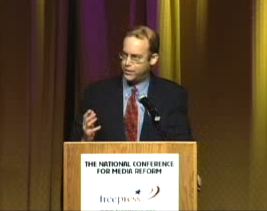There's an old PR trick that if bad news can't be suppressed, its release should be stalled until late on a Friday afternoon or just before a holiday break. It's a trick that served the U.S. Department of Education well when, late on Friday April 15, it released its Office of Inspector General's damning final report into the $240,000 Armstrong Williams contract to promote the No Child Left Behind (NCLB) legislation.
The strategy behind the late Friday afternoon news dump is simple: most media outlets will be squeezed for space to cover a late-breaking story, looming deadlines will ensure harried journalists don't have time to get much further than the executive summary, and by the time Monday rolls around, it will be seen as stale news by editors with the attention span of a gnat.
Reading the 20-page report, which was prompted by Greg Toppo's exposé on the Williams contract in USA Today, it's easy to see why the Education Department wanted to bury it. The report chronicles the deception, bungling and mismanagement behind the Williams contract.

 "We need to fight one of [media consolidation's] most pernicious symptoms, I think, which is the increasing commercialization of media," the
"We need to fight one of [media consolidation's] most pernicious symptoms, I think, which is the increasing commercialization of media," the